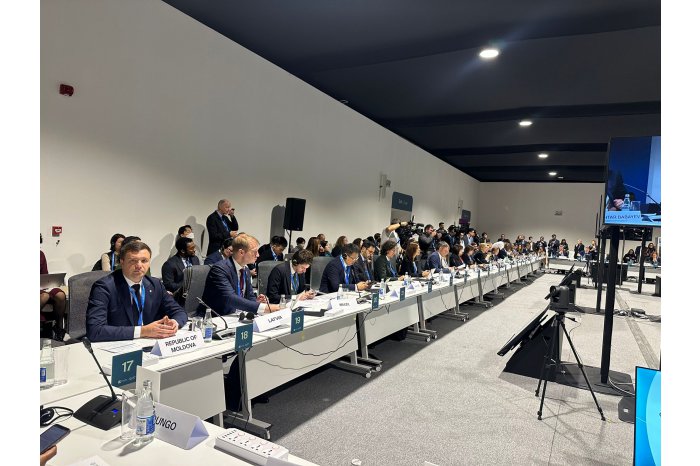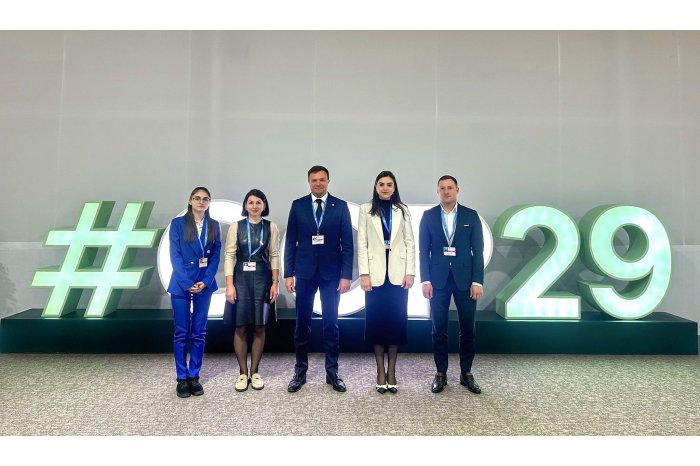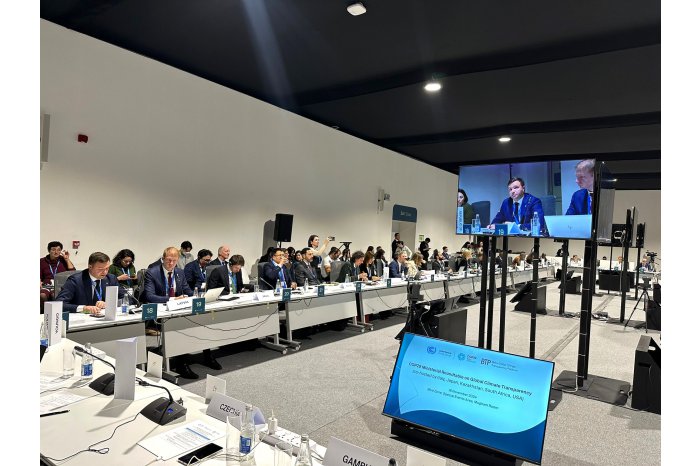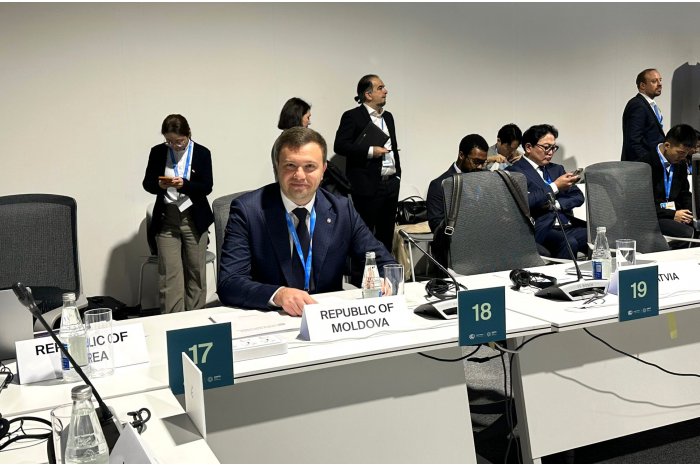Moldova finishes Biennial Transparency Report, which includes inventory of greenhouse gas
18:54 | 18.11.2024 Category: Social
Chisinau, 18 November /MOLDPRES/ - Environment Minister Sergiu Lazarencu today participated in a ministerial roundtable on the Global Climate Transparency in Baku, Azerbaijan. The official stressed the importance of the enhanced transparency framework, meant to help the countries signatories to the United Nations Framework Convention on Climate Change (UNFCCC) fulfill their commitments of reducing the greenhouse gas emissions and implement policies and measures of adaptation to the climate changes.
Lazarencu referred to the progress made by Moldova as regards the enhanced transparency framework. Among the achievements, there is the Biennial Transparency Report, which includes the inventory of the greenhouse gas, which will be submitted to the secretariat of the United Nations Framework Convention on Climate Change till end of December 2024.
Also, Moldova is in the process of updating of the third round of the Nationally Determined Contribution, which is to encompass more ambitious reduction targets at the level of the entire economy. ‘’The updated Nationally Determined Contribution has the goal to reduce the greenhouse gas emissions by 70 per cent till 2030 against the levels from 1990. At the same time, through the implementation of the National Programme on the Extension and Rehabilitation of Forests (2023-2032), Moldova is set to increase the coverage with forests from 11 to 15 per cent, thus cutting the emissions of CO2 by about 12 million tons in the next 30 years,’’ the environment minister said.
At the same time, Sergiu Lazarencu stressed the importance of the international support on behalf of developed countries, in order to cope with the challenges concerning the technical capacity and the financial resources.
The Biennial Transparency Report of UNFCCC is a crucial instrument for the transparency, responsibility and assessment of the progress in the climate changes sector. The report helps consolidate the global efforts for reducing the emissions and adaptation to the climate changes, providing, at the same time, a framework for a better international cooperation and a greater confidence between states.




